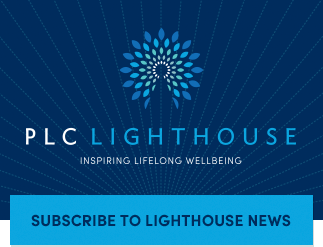Embrace the JOMO
The fear of missing out has always been a thing. Long before the internet was born and the acronym FOMO conceived, peopled worried about missing out, myself included. Whether it be missing out on a great social event, or not achieving or succeeding as I felt I should, I often sacrificed precious hours of sleep in order to not ‘miss out’. Maxims such as ‘you snooze, you lose’ or, worse still, ‘you can sleep when you’re dead’ do nothing to promote the benefits of a regular seven to eight hours (eight to ten for teenagers) in dreamland.

Sleep is not a waste of time – it is anything but. It is a constructive activity, vital for all aspects of our wellbeing – mental, physical, emotional and spiritual. Sleep is not an obstacle to achieving our goals or getting the most out of life. It improves our capacity to work and live at our best. While we sleep, our brains are busy doing what they do (cognitive maintenance, memory consolidation, neurological cleansing) to optimise the quality of our waking hours and ensure we begin the next day restored and refreshed.
We sometimes hear of people who claim to function at their best on just a few hours’ sleep. They may be able to sustain this for a while, but in the end, it’s a delusion. While former British Prime Minister, Margaret Thatcher, is famously said to have only slept for four hours each night, Einstein is known to have slept for ten hours each night, as well as taking regular daytime naps! I’ll leave you to decide who made the greater contribution to humanity…
Wonderful, Critical Sleep!
When I was going through my ‘annus horribilis’ six years ago, one of the worst symptoms I experienced was my inability to sleep, despite being exhausted to the point of despair. Did the insomnia come first, or was it the anxiety and depression? I can’t say for sure. What I do know is that they all became intertwined and self-perpetuating: not sleeping properly exacerbated my anxiety. Being anxious all the time compounded my depression, and both these conditions kept me awake, night after night, week after week, month after month. I spent each day exhausted and each night wide awake – It was certainly no way to live.
Eventually, it got better. I acknowledged the problem, sought help, did the work (see last month’s post) and began to sleep properly and thrive again. Amongst many other key lessons, I have learnt just how critical sleep is to our physical and mental wellbeing, and our ability to function at our best. The research is there, the scientific evidence backs it up, and it’s crystal clear: without sufficient sleep, our cognitive ability, concentration, memory, decision-making and productivity are affected, as well as our personal health and relationships. Being sleep deprived is dangerous, fact.
App-solutely Ridiculous
I’m sure I can’t be the only person to see the irony in using a sleep app to help get some rest. One of the main reasons sleep deprivation has become such an issue is the 24/7 world created by technology, and its impact on our capacity to switch off, both physically and mentally. We are constantly connected to our devices – for work, socialising, exercising, entertainment, keeping up with current affairs. And according to Apple, we’re also now using our devices to help us unwind – from work, but also from a long day of googling, tweeting, instagramming and snapchatting. We never escape!
My advice, for what it’s worth? No screen time an hour before bed – send that last email, compose that last witty tweet, post that cleverly captioned, perfectly filtered Instagram, then say goodnight to your phone, tablet and laptop. Put them to bed.
In the same way we recharge our devices overnight, we need to create the right environment to recharge, disconnect and reconnect with ourselves. Wind down in whatever way works for you – do some yoga, meditation, breathing exercises, listen to music, read a good book.
If you’re doubting my advice, hop onto Google (at least an hour before bedtime)! Study upon study has shown that blue light emitted by LED screens affects our sleep health by slowing the production of melatonin (the hormone that helps your body know when it’s time to sleep and wake up).
Here at PLC, the benefits of sleep and rest are highly regarded. We are so fortunate to have the Lighthouse as somewhere to meditate, work out, get creative or just switch off. By taking time during our busy days to rest and replenish, even just for ten minutes, we are setting ourselves up for a night of quality sleep.
To finish, and without wanting to alarm you, here are some facts and statistics…
- The financial impact of list sleep has been highlighted by researchers the world over, including in the report ‘Re-awakening Australia’, which estimated that sleep disorders cost more than $5 billion a year in health care and indirect costs, as well as reducing quality of life and productivity, and causing driving and workplace accidents.
- Lack of sleep severely impacts our physical health. It increases our risk of diabetes, obesity, cardiac arrest and stroke, and weakens our immune system, making us more susceptible to colds and the ‘flu.
- While we sleep, our brain gets rid of toxins and proteins that have been linked to Alzheimer’s.
- The Duke Medical Centre in the US reported that for optimal psychological functioning, women need more sleep than men.
- Sleep deprivation has a strong connection to anxiety and depression.
The Joy of Missing Out
The good news is that all these things can be avoided, or the risks significantly reduced, if we prioritise getting quality sleep. I still battle with the fear of missing out, but I’m trying to embrace the joy of missing out – JOMO not FOMO!
As the end of term approaches, let’s be mindful of taking time to rest completely and recharge. We all deserve a well-earned break.
So, until next month, I wish you all happy holidays, long restorative sleeps, nourishing afternoon naps and sweet dreams.

